Let’s talk about one of my favorite topics: digestion, probiotics and gut health!

A few weeks ago I taught a workshop at my local health food store about probiotics and fermentation. Talking about probiotics – and related topics like digestion, bowel movements, and fiber– is my favorite topic because a healthy digestive system is one of the most important pieces of the wellness puzzle. And it’s so fascinating! Research is showing more evidence that our gut is the key to good physical, mental, and emotional health. Also, good poops just feel good! Who doesn’t want that?
Below is a summary of my talk, supplemented with research showing how important it is to have a healthy gut that is teeming with good bacteria, create a diet that includes lots plants and healthy fiber, and to teach you to ‘trust your gut’ when it comes to true wellness.
Gut health has been a popular topic for natural healing folks for a long time, but in recent years it’s become a bit more mainstream– and with good reason. Researchers are now finding that gut health affects our whole body, and maintaining (or rebuilding) gut health is imperative for true wellness.
What is the Gut?
When we talk about gut health, we are speaking of primarily the lower (intestinal) part of our digestive system, which is home to trillions of bacteria– 10 times more than our own cells. Anywhere from 500 to 1000 species are operating in this unique ecosystem, and the complex functions of these bacterias are a fascinating new focus of science. And gut health is linked to optimal function of human body in many ways.
 The average human body, consisting of about ten trillion cells, has about ten times that number of microorganisms in the gut. The metabolic activity performed by these bacteria is equal to that of a virtual organ, leading to gut bacteria being termed a “forgotten” organ.”
The average human body, consisting of about ten trillion cells, has about ten times that number of microorganisms in the gut. The metabolic activity performed by these bacteria is equal to that of a virtual organ, leading to gut bacteria being termed a “forgotten” organ.”
As part of the long digestive process, bacteria in the gut help the body absorb the nutrients from the food. They also produce some important nutrients such as B vitamins, K, biotin, folic acid, and even steroid hormones. Bacteria also protect us from infections and other pathogens from outside, improve our overall immune system. Gut health is so important that The New York Times says, “Biologists now believe that much of what makes us human depends on microbial activity.”
What is the Gut-Brain Connection?
Scientific American shares that ongoing research makes it clear that our gut– our second brain– has a huge impact on our real brain. “The brain acts on gastrointestinal and immune functions that help to shape the gut’s microbial makeup, and gut microbes make neuroactive compounds, including neurotransmitters and metabolites that also act on the brain.”
A white paper from a food clinic trial explains how this works: “There is increasing evidence that the commensal microbiota plays a role in early programming of the stress system, and is responsiveness to triggers. The routes of communication between the microbiota and brain are not fully elucidated but include neural, humoral, immune and metabolic pathways. The concept of a microbiome-brain-gut axis is emerging which suggests that modulation of the gut microflora may be a tractable strategy for developing novel therapeutics for complex mental health disorders, where there is a huge unmet medical need.”
A well-functioning gut can also lead to less anxiety: Huffington Post reports that when patients were given doses of prebiotics (food for the probiotics), they showed less negativity, less anxiety and paid more attention to positive information than a placebo group, and that those taking the prebiotics had lower levels of cortisol, the hormone linked with stress, anxiety, and depression.
And good gut health makes us happy, and more mentally stable. The New York Times writes, “Our supply of neurochemicals — an estimated 50 percent of the dopamine, for example, and a vast majority of the serotonin — originate in the intestine, where these chemical signals regulate appetite, feelings of fullness and digestion. Only in recent years has mainstream psychiatric research given serious consideration to the role microbes might play in creating those chemicals.” Bacteria in our gut actually create these brain chemicals, proving they have a role in intestinal disorders and are correlated with depression and anxiety.
And research about the gut and mental health connection is even more fascinating. Dr. Mercola shares research from UCLA that shows the connection between the brain function and the gut. Because the brain sends signals to your gut, stress is directly linked to digestive issues, and the opposite is true too. Patients with gastro-intestinal disorders felt new or increased depression and anxiety as digestive issues set in.
And finally, a healthy gut means a healthier body, as much of our immune system resides in our lower intestinal tract and relies on proper functioning for fighting off infections. Dr. Mark Hyman writes on EcoWatch: “Your gut wall houses 70 percent of the cells that make up your immune system. You might not attribute digestive problems with allergies, arthritis, autoimmune diseases (irritable bowel syndrome, acne, chronic fatigue), mood disorders, autism, dementia and cancer [but] many diseases seemingly unrelated are actually caused by gut problems.”
How to Build a Healthier Gut
Because of diet and lifestyle, many of us have imperfect gut health. Stress, anxiety, and unhealthy foods can devastate the gut flora. Some of the worst foods for digestive health are meat, dairy food, sugars (alcohol included) and antibiotics. A diet that is lacking in fiber also negatively affects the gut health, and food cannot be moved through the system fast enough (known as transit time).
The foods that we feed our body affects our gut flora in a big way. Dr. Emeran Mayer says, “people with high-vegetable, fiber-based diets have a different composition of their microbiota, or gut environment, than people who eat the more typical Western diet that is high in fat and carbohydrates. [Now] we know that this has an effect not only on the metabolism but also affects brain function.”
Probiotics Foods for Better Gut Health
1. Yogurt and Kefir: Sure, these have probiotics, but find the plant-based versions like soy yogurt, coconut yogurt and coconut kefir to get all the benefits without all the problems associated with dairy. Find 10 more probiotic-rich food here.
2. Sauerkraut and Vegetable Ferments: As a self-described fermentation nerd, this is my favorite source of probiotic love. I make homemade sauerkraut and homemade kimchi all the time, and eat kraut at least once each day. It’s delcious, simple and probably the cheapest option on this list.
3. Water Kefir and Kombucha: Buy it in bottles, or better yet, learn to make your own fizzy, fermented beverages. Here’s how to make water kefir, and here’s how to make kombucha.
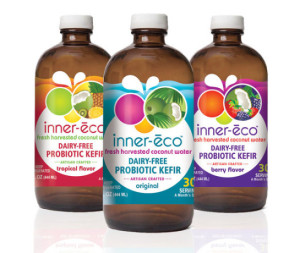 4. Miso: Fermented beans and rice make miso magic in this super healthy and super delicious condiment. Learn more than you ever wanted to know about miso here (and get some miso recipes too).
4. Miso: Fermented beans and rice make miso magic in this super healthy and super delicious condiment. Learn more than you ever wanted to know about miso here (and get some miso recipes too).
5. Edible Supplements: While food can be a great source of probiotics, if you’re fighting an infection, a cold or a digestive issue, probiotic supplements can help boost your probiotic numbers. I like coconut-water based Inner Eco, Flora brand probiotic supplements, but there are so many great options out there. They can be pricey, so be sure to do your research and find which strains are best for your condition, and find which ones are on sale! It’s also important to mention psyllium husk; psyllium is not a probiotic supplement, but it’s an awesome fiber supplement to add to your diet to help move along waste material out of your system and give the protiotics a happy place to thrive.
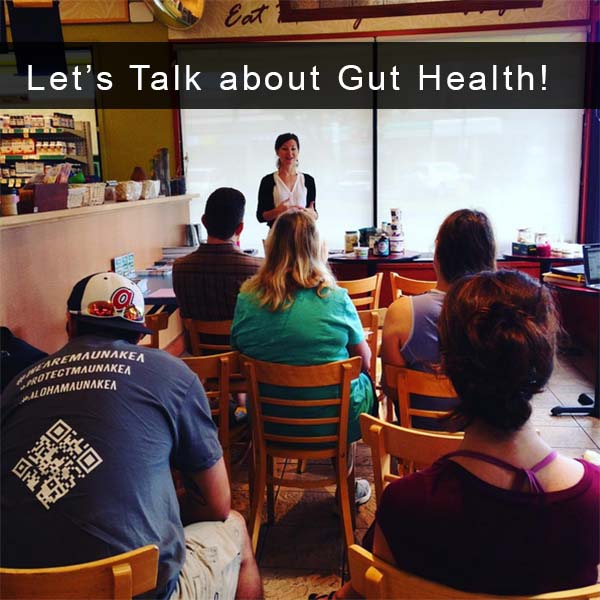

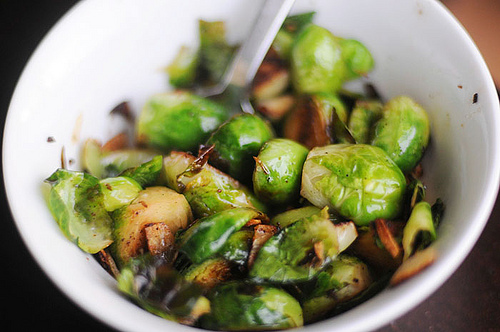

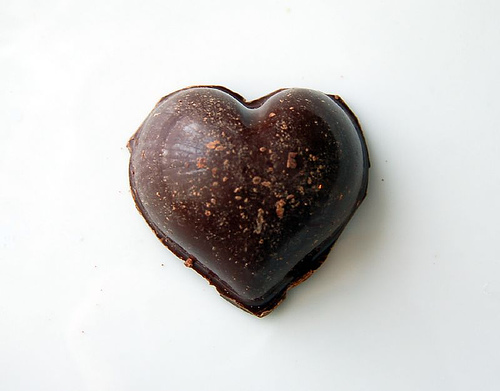

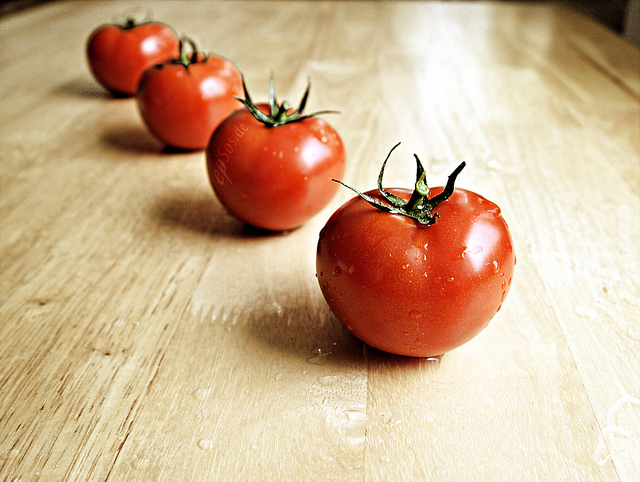

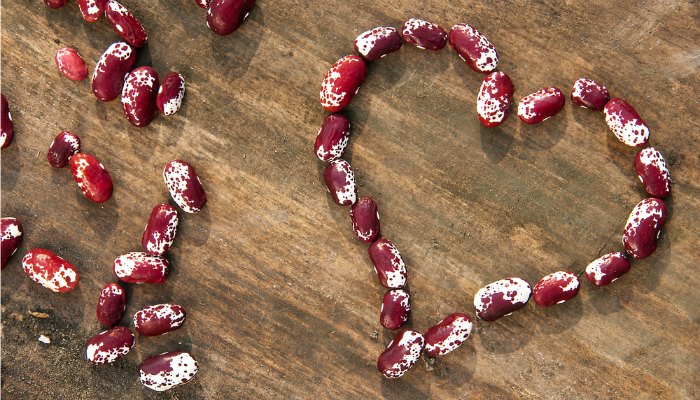
! had rheumatic fever as a child and have needed antibiotics constantly just to fight off infections and stay alive. I have had a lifetime of asthma, bronchitis, pneumonia, and heart failure with two open heart surgeries for valves and an enlarged heart. I now am on 15 medications for various conditions and take monthly infusions for a condition of insufficient
gamma globulin. I am 71 years old and am doing fairly well, but am very high maintenance.
Only this last year have i begun to focus on my gut flora, after reading an online article that connected Type 2 Diabetes with the heavy use of antibiotics through out a person’s lifetime.
I am very grateful for this news and am doing what I can to be as healthy as I can.
Thanks for sharing Cherryl- I hope your health continues to improve!
as a teacher i continually search for the ultimate herbs to restore normal intestinal flora…in my search i have found that fibers cleanse the gut and remove excess bacteria..even if it is good bacteria,so long as it overgrows, it becomes too bad for health… fruits and vegetables rich in fibers such as papaya, cardamom, wormwood tree, aloe ferox and fennel can cleanse the gut of the accumulated toxins